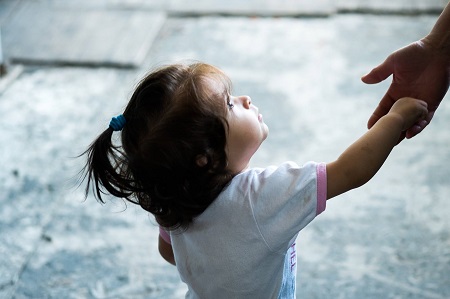UNICEF: Poverty indicators drop but 1 in 5 children live in poverty in Georgia

The United Nations Children's Fund (UNICEF) has today released its findings of a survey about children's welfare in Georgia.
Every two years since 2009 UNICEF Georgia has partnered with the Social Policy Research Unit of the University of York, United Kingdom (UK) to produce the Welfare Monitoring Survey, which examines the welfare of the population of Georgia. It is a biennial household survey covering all the Government-controlled regions of Georgia.
The latest report examined the prevalence and distribution of consumption poverty, material deprivation, subjective poverty and social exclusion for 2015.
The survey completed by 4,533 households showed one in five children live in poverty in Georgia and one in six children live under the subsistence minimum. Despite these stark figures, a UNICEF representative said the results were encouraging.
Georgia is making significant progress in addressing poverty through social transfers, especially pensions and targeted social assistance,” said Laila Omar Gad, UNICEF representative in Georgia.
The poverty indicators have decreased but children still remain the most vulnerable group. Georgia’s social protection system must respond to the vulnerabilities experienced by its people – especially children,” she added.
Key findings of the Welfare Monitoring Study included:
- Poverty rates are higher in households that have children than those without. Child poverty rates are about 50 percent higher in rural areas than in urban areas.
- Extreme poverty (people who live on $1.25 USD per day/less than 3 GEL) rate reduced from 3.9 percent (2013) to 2.1 percent among the population and from 6 percent to 2.5 percent in children.
- General poverty (people who live on $2.5 USD per day/less then 5 GEL) rate among the population was reduced from 24.6 percent (2013) to 18.4 percent, and among children from 28.4 percent to 21.7 percent.
- People’s perception of subjective poverty has worsened. Increased prices, serious illness and a decrease in household income were reported as the main problems faced by people.
- The average healthcare expenditure of a household has increased by 31 percent. The purchase of medicines remained the main component of healthcare spending.
- Pre-school attendance rates (for 3-5 year-olds) increased from 57.9 percent in 2013 to 62.3 percent in 2015.
To combat social exclusion, it is important to develop a multisectoral strategy for children’s rights that will envisage stronger social protection, health and education systems to ensure better life for every child in Georgia,” said the UNICEF representative.
A presentation of the Welfare Monitoring Study for Georgia was part of the activities dedicated to UNICEF’s 70th anniversary.
 Tweet
Tweet  Share
Share